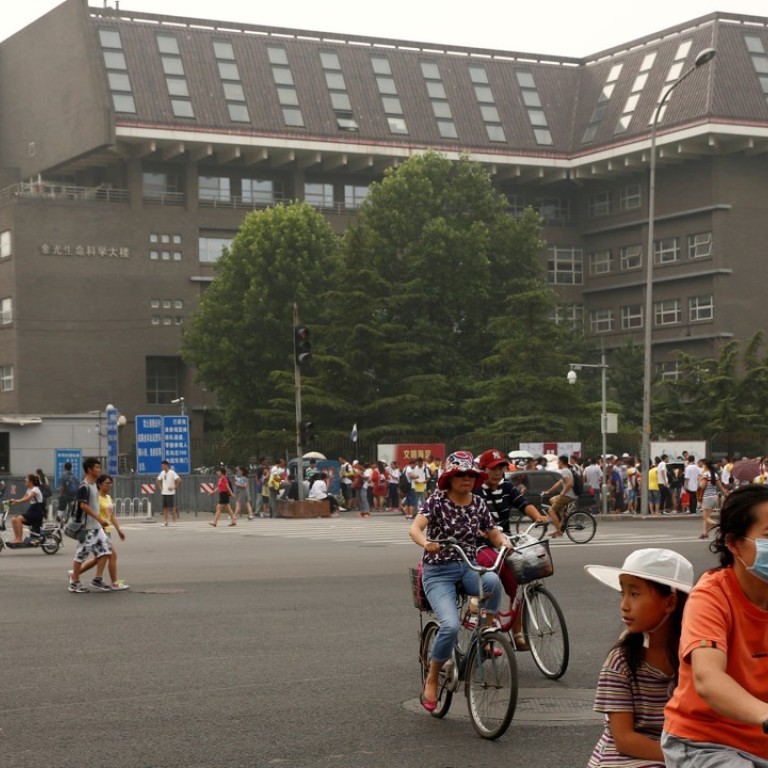
Hong Kong and Macau graduates from mainland Chinese universities struggle to stay and find jobs
Only 37 per cent of them eventually work on mainland China, with identification issues and keen competition among main challenges
Fewer than four in 10 Hong Kong and Macau students who graduated from mainland universities eventually work on the mainland, survey findings have shown, even though 80 per cent of current students are willing to take on a job there.
The poll, which looked at more than 300 Hong Kong and Macau students and graduates of 15 mainland universities, found their identity and tough competition were their biggest challenges.
The study was carried out from 2015 to this year by the Beijing Institute of Hong Kong and Macau Scholars, a three-year-old think tank set up by a group of graduate students from the two special administrative regions.
According to the Ministry of Education, 15,320 students from Hong Kong and 16,432 from Macau and Taiwan were attending universities on the mainland as of October 2016.
Surge in Hong Kong students applying to mainland universities contrasts sharply with anti-China sentiment
Researchers of the study, who interviewed 240 students and 70 graduates from Hong Kong and Macau of 15 mainland universities, found more than 80 per cent of current students were willing to stay on if they could secure a job. But they found only 37 per cent of the graduates stayed, while 60 per cent returned to their home city.
Terence Lin Chiu-fai, who led the study, said many focus group participants shared their difficulties in applying for jobs as they had to use their home return permits as their main form of identification on the mainland.
The code of 11 or nine digits is not widely recognised by public and commercial service systems on the mainland. Codes of 18 digits are used on the mainland.
The 53-page report named the rejection of home return permit codes by certain online job application systems as one of the hurdles faced. Participants also said they found the process of applying for working permits complicated and a burden for recruiters.
“Students willing to stay on should not be driven away by systematic barriers because they are also Chinese nationals,” Lin said. He proposed students and graduates who have lived on the mainland for a year or more should be required to apply for a national ID card with an 18-digit code, instead of having separate permits for working and living there.
However, mainland human resources specialists said keen competition with millions of young jobseekers was the issue.
“It’s an era when talents go global,” said a recruiter, who wanted to be known only as Jiang. The recruiter, who is based in Shanghai for eight years, said the advantage held by Hong Kong and Macau graduates in terms of overseas experiences and English proficiency is waning with more high-calibre graduates from home and abroad becoming available in recent years.

